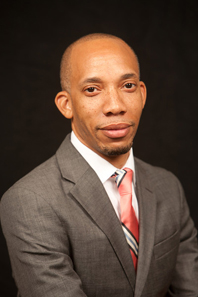 Students will be placed in various government agencies, non-profits, and advocacy organizations, including the Environmental Protection Agency, the Department of Health and Human Services, the Washington, D.C. Office of Police Complaints, the Department of Justice, and the U.S. Commission on International Religious Freedom, among others.
Students will be placed in various government agencies, non-profits, and advocacy organizations, including the Environmental Protection Agency, the Department of Health and Human Services, the Washington, D.C. Office of Police Complaints, the Department of Justice, and the U.S. Commission on International Religious Freedom, among others.
To gain admission into the Semester in Practice students were required to apply for participation and secure approved externship placements in Washington, D.C. Student applications were reviewed by a panel, which included the Office of Career Development, Director of the Externship Program Jennifer Zawid, and Professor Charlton Copeland. The panel looked for students who either had previous experience in Washington, D.C. or other governmental experience, or demonstrated their interest in government, policy, or advocacy in their course work or other activities.
Along with the externship placement, the goal of the course, taught by Professor Copeland, is to provide comprehension of the institutional, political, and legal contexts in which policymaking and implementation take place. The course will focus on the three dominant forums for federal policymaking – Congress, agencies, and the courts – each of which corresponds to a different, but related, form of law practice.
Professor Copeland hopes that the diversity of placements and the material encountered through coursework will help students integrate the experiential and academic components of the semester.
"Regardless of whether one's primary practice focus is legislative advocacy and lawmaking, policy advocacy and implementation in administrative agencies, or litigation, the practice of law is strengthened by the knowledge and appreciation for the connected nature of these policymaking forums," said Professor Copeland.
Beyond the practice of law in the "traditional" sense, the course is also intended to contribute to students' appreciation of the substantive policy analysis. Again, the diversity of substantive areas represented within the student placements will contribute to student understanding of the commonalities and specificity of policymaking in different areas, ranging from environmental protection to antitrust.
The course will build on more general public law courses in Legislation, Administrative Law, Civil Procedure, Federal Courts, and more specific content found in such courses as Labor Law, Communications Regulation, Tax, Education, and Healthcare. It will primarily engage economic, political science, and public administration literature to expand our analytical frameworks with models of the legislative and regulatory process. At every point, students are expected to bring their work experience into the discussion to interrogate both their experience and the theoretical models of public decision making.
- Accessibility Options:
- Skip to Content
- Skip to Search
- Skip to footer
- Office of Disability Services
- Request Assistance
- 305-284-2374
- Display:
- Default
- High Contrast
- Accessibility Options:
- Skip to Content
- Skip to Search
- Skip to footer
- Office of Disability Services
- Request Assistance
- 305-284-2374
- Display:
- Default
- High Contrast
- Apply
- About UM
- Give to UM
-
Schools
- School of Architecture
- College of Arts and Sciences
- Miami Herbert Business School
- School of Communication
- School of Education and Human Development
- College of Engineering
- School of Law
- Rosenstiel School of Marine, Atmospheric, and Earth Science
- Miller School of Medicine
- Frost School of Music
- School of Nursing and Health Studies
- The Graduate School
- Division of Continuing and International Education
- Alumni
Miami Law Launches New Semester in Practice in Washington, D.C.

By UM News
University of Miami School of Law
-
1311 Miller Drive
Coral Gables, FL 33146 - lawcommunications@law.miami.edu
Resources
Quick Links
Communications
Legal
Copyright: 2026 University of Miami. All Rights Reserved.
Emergency Information
Privacy Statement & Legal Notices
Title IX & Gender Equity
Website Feedback
Individuals with disabilities who experience any technology-based barriers accessing University websites can submit details to our online form.
